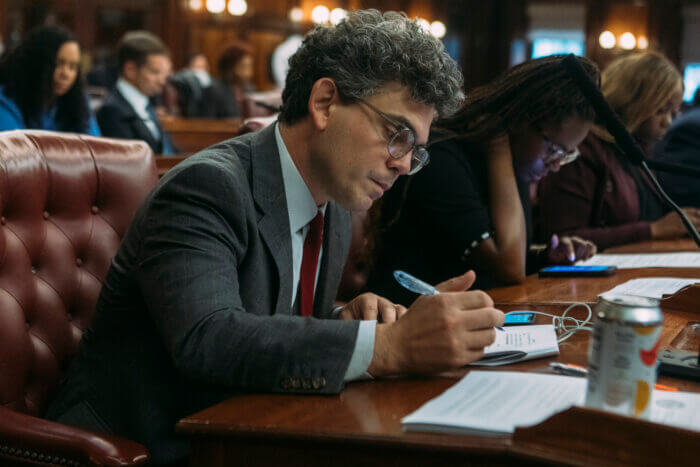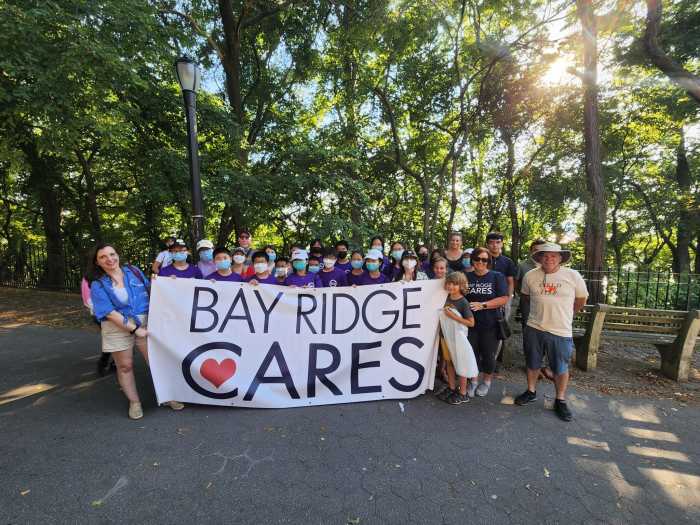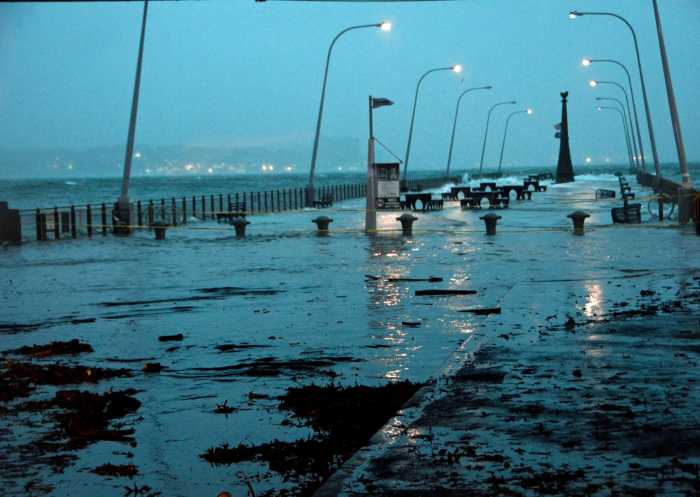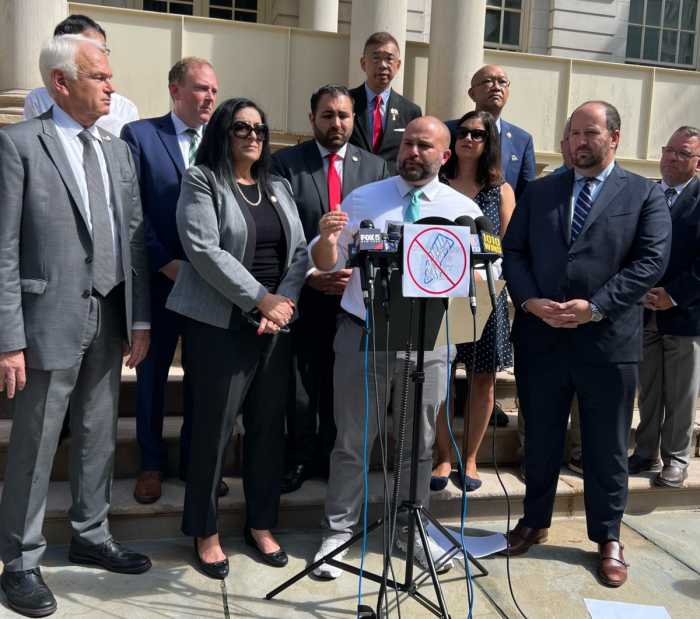New York City Council Member Lincoln Restler has introduced a new legislative package aimed to improve air quality for New Yorkers and notify them during air quality-related emergencies.
The council member — who represents District 33, which includes Greenpoint, Williamsburg, and Downtown Brooklyn — introduced the bills after periods of extremely poor air quality in June that stemmed from smoke from Canadian wildfires that gusted over the city.
The bills call for the creation of a system to notify New Yorkers when air quality is dangerous; the formation of an emergency response plan to address problematic air quality; and the designation of days when residents must reduce their emissions due to poor air conditions.
Restler said the city needs to do more to get New Yorkers prepared for extreme weather conditions — like wildfire smoke or the severe storm that struck the city on Sept. 29. The city received intense criticism for not adequately warning New Yorkers of what was to come in both instances.
“Unfortunately, what we experienced this past week with the extreme weather event was eerily similar to the air quality incidents from earlier this year in that there was very limited communication from the city government about what was happening when extreme weather incidents are forecast for our city,” Restler told Brooklyn Paper on Wednesday. “It’s critically important that the mayor and senior administration officials use their bully pulpit to communicate clearly about what’s happening, prepare for the worst case scenarios and take the necessary precautions to keep us all safe.”
After the air quality emergencies of this year, Restler’s office released an Air Quality Resource Guide for residents to access some basic information about the air quality index and potential health risks associated with poor air quality. Now, Restler is tackling a greater fight to secure safer air quality for NYC communities.

He introduced the package on Sept. 28, just a week before smog from wildfire smoke moved in to shroud the city once again on Monday.
“We introduced this package of legislation to ensure that when, not if but when, air quality incidents occur in the future, the city is better prepared to handle them,” said Restler. “And through comprehensive public notification processes, development of an emergency preparedness plan and specific measures included in our ‘Spare the Air’ days that can mitigate pollution when the air quality incidents occur.”
In total, Restler introduced three bills.
The first would require the Commissioner of New York City Emergency Management to develop and implement a notification system to alert New Yorkers of potential air quality emergencies.
The second bill would require NYCEM to create a specific emergency protocol plan in direct response to unhealthy or dangerous air quality events, similarly to how the department is required to do so for other weather events. According to a recent report by Al Jazeera English, air pollution is steadily becoming more and more deadly, killing about seven million deaths globally each year.
The third and final bill would create “Spare the Air” days, similar to ones implemented in California, in which the city designates specific days to prohibit high-exhaust or emission activities as well as encourage the public to reduce their own emissions.
Other leaders expressed their concern for the current gaps in environmental legislation that is negatively impacting vulnerable communities throughout NYC.
“As we work on building climate resiliency, a hard truth we must face is that climate change is already severely affecting our quality of life,” said Council Member Carmen De La Rosa, who co-sponsored the bills. “Our most vulnerable communities are negatively impacted when we do not have an education or response plan to face climate emergencies. The recent air quality emergency felt apocalyptic, and it is anxiety-inducing feeling unknowledgeable about how to protect yourself in a moment of crisis. These bills are a step towards agency accountability and securing future safety plans for New Yorkers.”
Council Member Shaun Abreu, whose district includes West Harlem and Morningside Heights in Manhattan, also spoke to how frightening it was to be unprepared for the air quality crisis earlier this summer.
“If it felt like our city was taken by surprise by thick wildfire smoke this past summer, it’s because we were,” said Abreu. “We need to be prepared going forward — and this is what this package of legislation does. As extreme weather events become more common, we must be better equipped as a city to handle spontaneous crises and ensure proper advisories are in place.”
Climate experts also weighed in to emphasize just how necessary the legislation is.
“The air quality emergencies from June and July of this year demonstrated clear weaknesses in the City’s emergency response and notification system,” said Victoria Sanders, Research Analyst, NYC Environmental Justice Alliance. “However, this gave us the opportunity to learn from those mistakes and take active steps to address these gaps to ensure we are properly prepared for this type of public health emergency the next time. The city must do everything it can to educate, alert, and protect NYC residents, particularly those who are most vulnerable.”
























